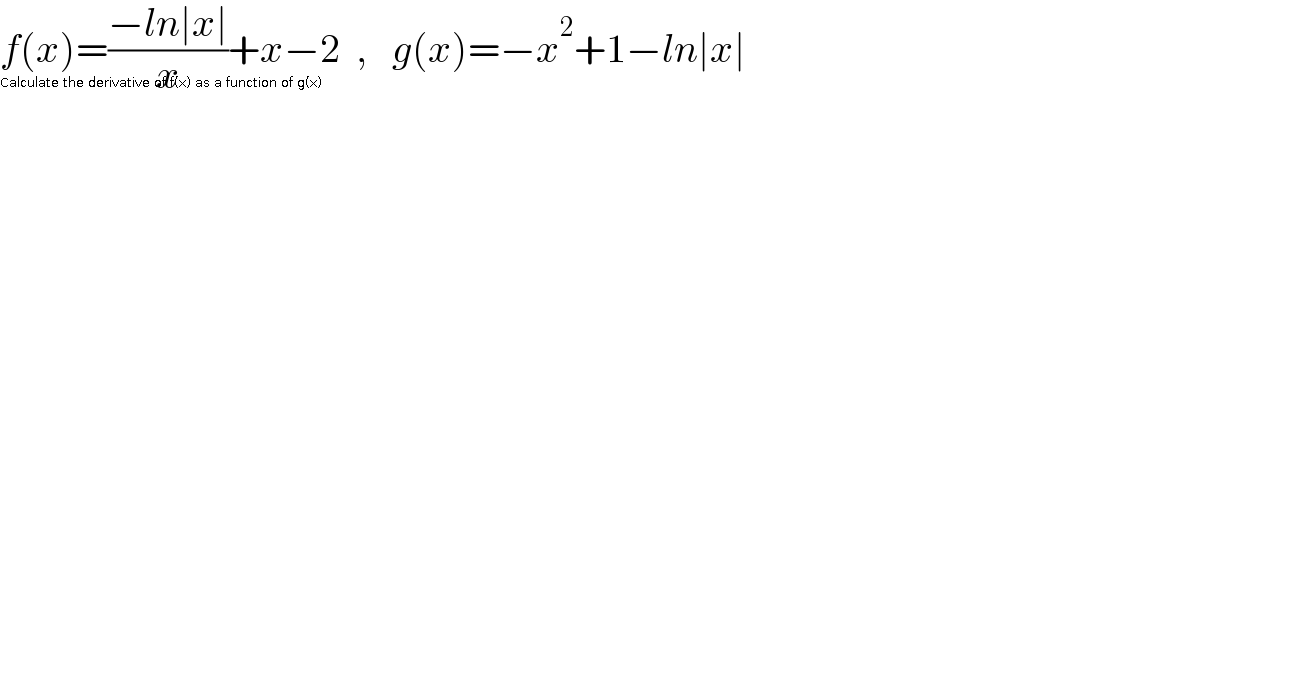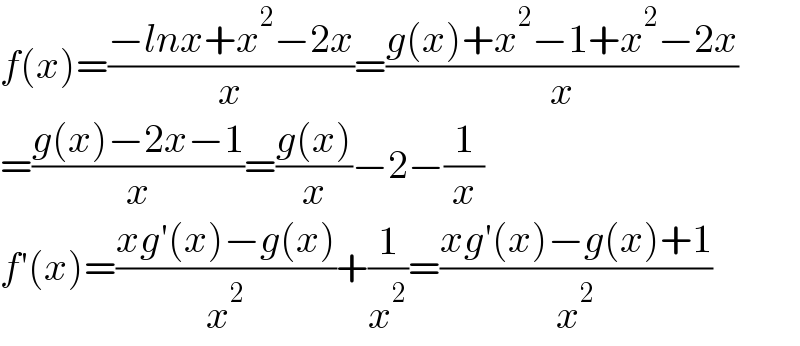
Question and Answers Forum
Question Number 171546 by Kodjo last updated on 17/Jun/22

Commented bykaivan.ahmadi last updated on 17/Jun/22

| ||
Question and Answers Forum | ||
Question Number 171546 by Kodjo last updated on 17/Jun/22 | ||
 | ||
Commented bykaivan.ahmadi last updated on 17/Jun/22 | ||
 | ||